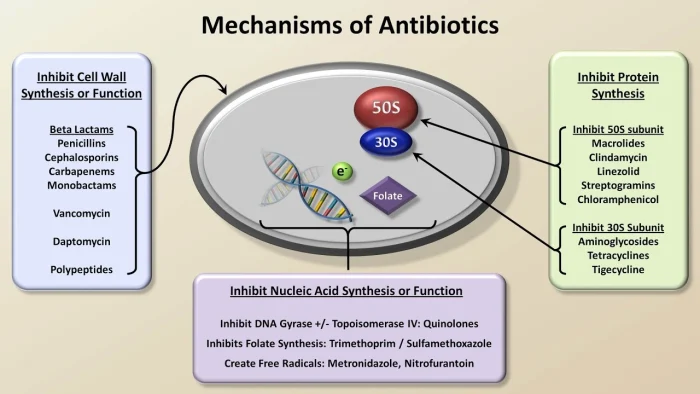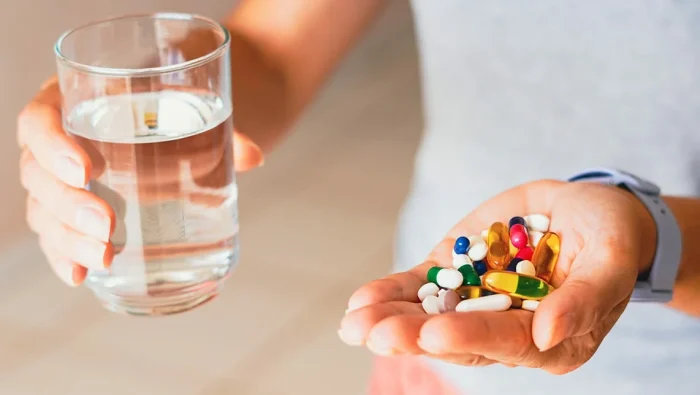Antibiotics are powerful medications designed to fight bacterial infections. While they can be life-saving when used appropriately, misuse—especially taking antibiotics without an actual infection—can lead to a host of problems. From antibiotic resistance to unnecessary side effects, the consequences of improper use can be serious, both for individual health and public safety.
In this article, we’ll explore what happens if you take antibiotics without an infection, why this practice is risky, and how to use antibiotics responsibly. Whether you’re self-medicating or just curious, understanding the full impact of unnecessary antibiotic use is vital.
Understanding Antibiotics and Their Intended Purpose

What Are Antibiotics?
Antibiotics are a class of drugs used to treat infections caused by bacteria. They work by killing bacteria or stopping them from multiplying, allowing your immune system to eliminate the remaining microbes.
When Are Antibiotics Appropriate?
Antibiotics are prescribed for conditions such as:
- Strep throat
- Urinary tract infections (UTIs)
- Bacterial pneumonia
- Skin infections
- Some sinus or ear infections
They are not effective against:
- Viruses (like the flu or common cold)
- Fungal infections
- Most sore throats or bronchitis
What Happens If You Take Antibiotics Without a Bacterial Infection?
Disruption of Gut Microbiome
Your gut contains trillions of beneficial bacteria that support digestion, immunity, and even mental health. Unnecessary antibiotics can:
- Kill good bacteria
- Cause gastrointestinal issues (e.g., diarrhea, bloating)
- Lead to infections like Clostridioides difficile (C. diff), a dangerous condition linked to antibiotic overuse
Increased Risk of Antibiotic Resistance
When bacteria are exposed to antibiotics without cause, they can adapt and become resistant. This means:
- Future infections may not respond to treatment
- Stronger, more expensive medications may be required
- You contribute to a global public health crisis
Unwanted Side Effects Without Benefit
Even when taken correctly, antibiotics can cause:
- Allergic reactions (rashes, itching, anaphylaxis)
- Nausea and vomiting
- Yeast infections (especially in women)
Taking them unnecessarily means you get the risks without any health benefit.
Masking of Underlying Conditions
If you’re taking antibiotics when you don’t need them, you may delay accurate diagnosis of your real problem. Symptoms may temporarily fade, but the underlying cause—like a viral or autoimmune issue—can worsen.
Harm to Liver and Kidneys
All medications are processed through the liver or kidneys. Taking antibiotics without need puts extra stress on these organs and, over time, could lead to organ damage or reduced function—especially in older adults or those with chronic conditions.
Common Reasons People Take Antibiotics Without Infections
Self-Medication
People often save leftover antibiotics or purchase them without prescriptions in certain countries. They might use them for:
- Colds or flu
- Minor coughs or sore throats
- “Just in case” after travel or injury
Pressure on Healthcare Providers
Some patients expect antibiotics for any illness, pressuring doctors to prescribe them even when unnecessary.
Lack of Awareness
Many people don’t realize that antibiotics don’t treat viral infections, leading to misuse during viral illnesses like COVID-19 or seasonal colds.
How to Use Antibiotics Responsibly

Only Take Antibiotics When Prescribed
Never use someone else’s medication or leftover antibiotics. Your doctor will determine if you truly need them.
Complete the Full Course
If prescribed antibiotics, take them exactly as instructed—finish the entire course, even if you feel better.
Ask About Alternatives
For many conditions, rest, hydration, and over-the-counter remedies may be more appropriate than antibiotics.
Learn the Signs of Bacterial Infections
Understanding the difference between bacterial and viral symptoms can help reduce pressure on your doctor and prevent self-medication errors.
The Global Impact of Antibiotic Misuse
Antibiotic resistance is now a leading threat to global health. According to the WHO:
- At least 700,000 people die each year from resistant infections
- Misuse of antibiotics in humans and livestock is a key cause
- Without action, we could face a “post-antibiotic era” where even minor surgeries become dangerous
Alternative Approaches to Illness Prevention and Treatment
Focus on Immunity
Boost your immune system naturally by:
- Eating a balanced diet rich in fruits and vegetables
- Getting regular exercise and sufficient sleep
- Managing stress and avoiding smoking
Probiotics and Gut Health
After a necessary course of antibiotics, consider taking probiotics to restore healthy gut flora.
Vaccination and Hygiene
Prevent infections in the first place through proper hand hygiene and staying up to date with vaccinations.
When to Seek Medical Advice
If you’re feeling unwell and unsure whether you need antibiotics:
- Visit a healthcare provider
- Avoid guessing or Googling symptoms
- Request testing (like throat swabs or urine tests) before starting treatment
FAQs About Taking Antibiotics Without Infection
Can antibiotics treat viral infections like the flu or COVID-19?
No. Antibiotics only treat bacterial infections. Viral illnesses should be managed with supportive care, not antibiotics.
What are the risks of taking antibiotics unnecessarily?
You may face side effects, damage your gut health, increase antibiotic resistance, and mask serious conditions.
Can I stop taking antibiotics once I feel better?
No. Always finish the full course unless your doctor advises otherwise, to prevent resistance and relapse.
What should I do with leftover antibiotics?
Dispose of them safely through pharmacy take-back programs. Do not keep them for future use.
How can I tell if I have a bacterial or viral infection?
Only a healthcare provider can accurately diagnose the cause of your symptoms. Avoid self-diagnosing or self-treating.


